Coordinación
Una coordinación sólida puede evitar vacíos y duplicaciones en las respuestas humanitarias, así como garantizar que los PTM complementen otros tipos de asistencia. Sin embargo, el informe del «Estado Global de los Programas de Transferencias Monetarias» de la CALP Network muestra que la coordinación de la asistencia en efectivo es vista como débil y ad hoc, y que esto está teniendo graves repercusiones operativas.
Los donantes, las ONG y los líderes de los grupos de trabajo de transferencias monetarias (GTM) han pedido claridad sobre tres temas principales relacionados con la coordinación de la asistencia en efectivo:
- Quién debe ser responsable de asegurar una coordinación eficaz de la asistencia en efectivo;
- Cuál es la función y el mandato de los grupos de trabajo de transferencias monetarias, incluso en relación con las transferencias monetarias multipropósito;
- Cómo se debe dotar de recursos a la coordinación de asistencia en efectivo.
Tenemos que basarnos urgentemente en lo que funciona y proporcionar claridad a nivel mundial sobre las preguntas arriba mencionadas, adaptándonos a los diferentes contextos. Hace mucho tiempo que se deberían haber tomado decisiones claras basadas en necesidades operativas y no en la política de las agencias.
Prioridades actuales
El objetivo de la CALP Network es contribuir a seguir progresando en este tema en tres niveles: apoyar a los grupos de trabajo de transferencias monetarias a nivel regional; contribuir a soluciones prácticas para la coordinación de la asistencia en efectivo a nivel mundial; y convocar una discusión basada en la evidencia sobre temas clave, destacando puntos de decisión críticos y oportunidades de progreso.
Contenido destacado

Cash Coordination Tip Sheet
Guidelines and Tools
This tip sheet sets out established best practice, key guidance and resources for all aspects of cash coordination, intended as a clear, accessible and action-oriented guide for those engaged in coordination of cash and voucher assistance (CVA) at the field level.

Introducing the Cash Coordination Tip Sheet
Webinar
The CALP Network has developed a tipsheet setting out established best practice and key guidance and resources for all aspects of cash coordination, intended as a clear, accessible and action-oriented guide for those engaged in coordination of cash and voucher assistance at the field level.

Cash Coordination: A proposal from members in MENA
Blog Post
Earlier this year the CALP Network undertook regional consultations to explore options for cash coordination. This blog lays out recommendations from participants from the Middle East and North Africa who sketched out what cash coordination, and coordination more broadly, could look like in future to support a more effective, efficient and accountable response.
Últimos recursos
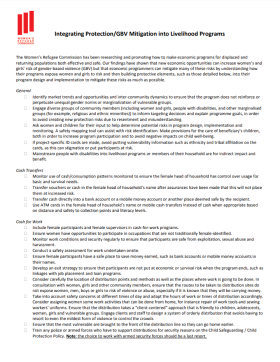
Integrating Protection/GBV Mitigation into Livelihoods Programmes
Guidelines and Tools
The Women’s Refugee Commission has been researching and promoting how to make economic programs for displaced and returning populations both effective and safe. Our findings have shown that new economic opportunities can increase women’s and girls’ risk of gender-based violence (GBV) but that...
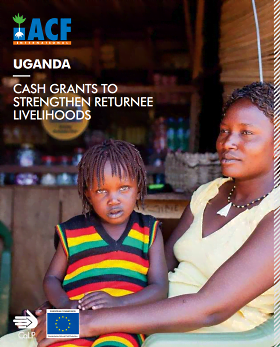
Uganda: Cash grants to strengthen returnee livelihoods
Case Study
In support of the return and recovery effort of formerly war affected populations, ACF implemented a cash-based intervention in Otuke District of Northern Uganda. This programme assisted internally displaced persons (IDPs) with the return home and re-establishing their livelihoods. Vulnerable households...
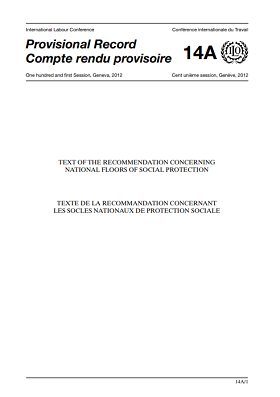
Text of the Recommendation Concerning National Floors of Social Protection
Report
Further to the International Labour conference 101st session, the International Labour Organization adopted a new international work. Recommendation concerning the implementation of quick national social protection floors and the progressive extension of social safety for all. Social protection floors are...
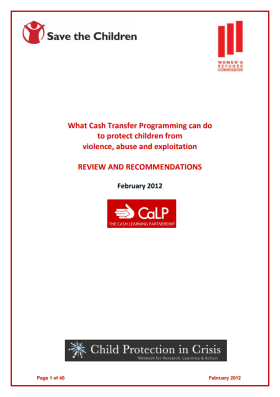
What Cash Transfer Programming can do to Protect Children from Violence, Abuse and Exploitation – Review and recommendations
Report
This discussion paper examines the links between cash transfers and the positive and negative outcomes for children, in particular the role cash transfers have played in protecting children from harm, exploitation, abuse and violence. The objective of this paper is to identify ways in which cash transfer...
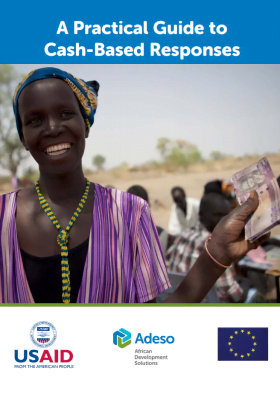
A Practical Guide to Cash-Based Response
Guidelines and Tools
A Practical Guide to Cash-based Responses is a manual developed by Adeso to share the organisation’s experience in developing and implementing appropriate cash-based responses. The manual highlights some practical problems that are faced by implementation teams around the world and it is intended to...
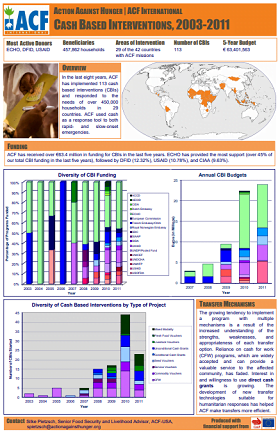
ACF Cash-based Interventions 2003-2011 (Poster)
Report
A one-pager / poster showing ACF’s cash-based interventions between 2003-2011, showing source of funding and type of intervention.
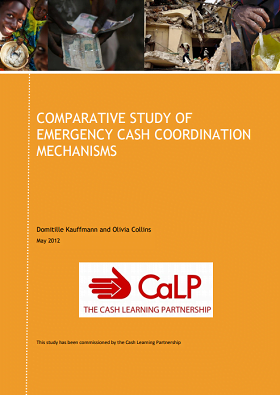
Comparative Study of Emergency Cash Coordination Mechanisms
Report
Based principally on three cases studies (Pakistan, Haiti, and the Horn of Africa), the objective of this comparative study is to draw on lessons learnt for better coordination of cash transfer programmes (CTP) in future emergencies. This study has been commissioned by the CALP Network and conducted by...
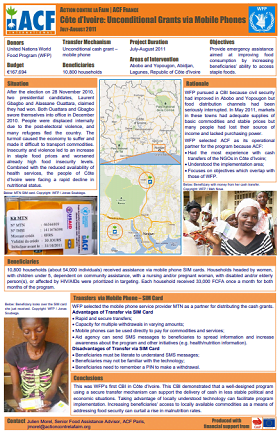
ACF Côte d’Ivoire: Unconditional grants via mobile phones (poster)
Report
This one-pager (poster) provides an overview of ACF’s experience transferring cash by mobile phone in the Ivory Coast (a WFP programme).

ACF Meta Evaluation: Fresh food vouchers (poster)
Report
This one-page poster shows a summary of the meta evaluation of 5 Fresh Food Voucher programmes in Bolivia, Haiti, Daadab Kenya, the oPT and Pakistan.
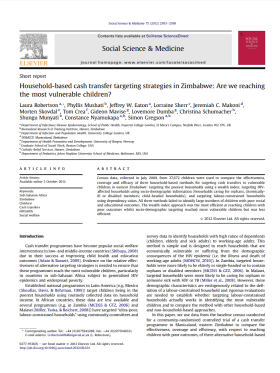
Household-Based Cash Transfer Targeting Strategies in Zimbabwe: Are we reaching the most vulnerable children?
Report
Census data, collected in July 2009, from 27,672 children were used to compare the effectiveness, coverage and efficacy of three household-based methods for targeting cash transfers to vulnerable children in eastern Zimbabwe: targeting the poorest households using a wealth index; targeting HIV affected...
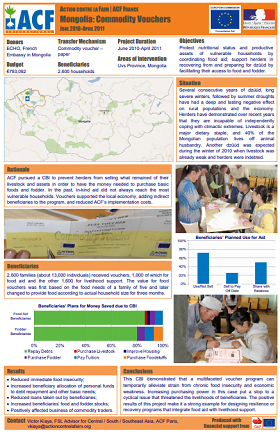
ACF Mongolia Commodity Vouchers (Poster)
Report
This one-page poster provides an overview of ACF’s commodity voucher programme in Mongolia.
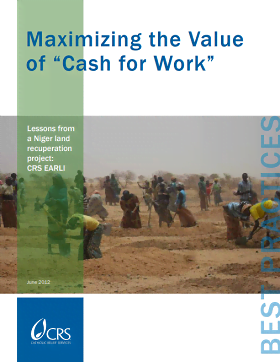
Maximizing the Value of "Cash for Work": Lessons from a Niger land recuperation project
Report
The good practices in this publication were distilled from a Real Time Evaluation (RTE) of an emergency project in Niger, implemented by Catholic Relief Services (CRS) and financed by OFDA that is using cash for work and seed fairs to address food insecurity in the departments of Ouallam and...

Cash transfer programming in urban emergencies: a toolkit for practitioners
Guidelines and Tools
In recognition of the increasing urban populations around the world and their increasing vulnerability to disasters, the the CALP Network endeavored to investigate the current status and impact of urban emergency response programs that utilise cash transfer programming. This study aims to better...
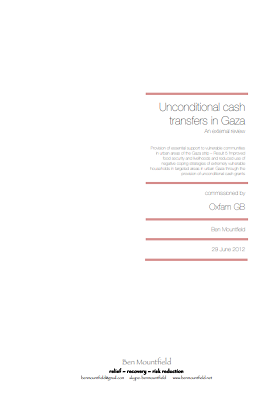
Unconditional cash transfers in Gaza: an external review
Report
This is a review of small pilot project, which targets extremely vulnerable households with monthly unconditional cash transfers for a limited period. The target population is made up of two groups, one group already receiving assistance through a voucher from WFP but still showing poor food diversity...

Cash Transfers in Nairobi’s Slums
Report
In Kenya, a combination of factors led to the food crisis of 2008–9, which put around 9.5 million people at risk of starvation. About 4.1 million of those affected were living in informal settlements (slums) in the capital, Nairobi. Oxfam and Concern Worldwide developed a joint programme to address...
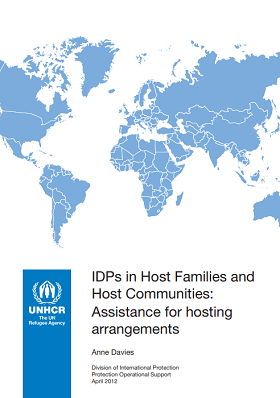
IDPs in Host Families and Host Communities: Assistance for Hosting Arrangements
Report
The phenomenon of internally displaced persons (IDPs) and refugees residing with host families is still relatively unexplored in comparison to what is known about IDPs and refugees living in camps. Of the nearly 14.7 million IDPs protected and assisted by UNHCR in 2010, an estimated 52% of the total live...
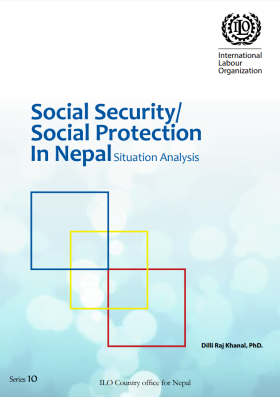
Social Security/Social Protection In Nepal: Situation analysis
Report
The International Labour Conference has outlined several strategies to extend social security by closing coverage gaps and pointed out that effective national strategies should be formed in line with national priorities, administrative feasibility and affordability. The primary goal is to ensure that no...

Cash Transfer Programming in Urban Emergencies: Tools (Annex 2)
Guidelines and Tools
This file contains the following tools referenced as Annex 2 of the the CALP Network Urban Toolkit:
1. Sample Focus Group Discussion Questionnaire to Establish Urban-Specific Vulnerability Criteria
2. Sample Urban Household Survey
3. Template in PowerPoint of Commodity Market Map
4. Template in PowerPoint...

MPESA Project Analysis: Exploring the use of cash transfers using cell phones in pastoral areas
Report
Safaricom Limited, a mobile network operator in Kenya, launched a mobile money transfer system called M-PESA in 2007. This system allows users to send or receive money on their Safaricom SIM card. Télécoms sans Frontières and Vétérinaires sans Frontières – Germany decided to work in partnership on...
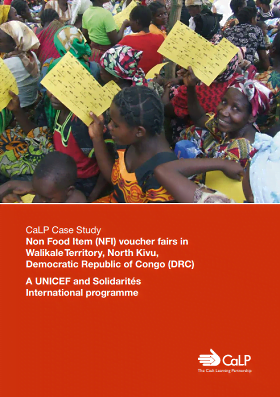
Non Food Item (NFI) Voucher Fairs in Walikale Territory, North Kivu, DRC (the CALP Network Case Study)
Case Study
In response to a rapid-onset emergency, UNICEF and Solidarités International utilized a cash-based voucher approach in Nyasi and Bobolo villages, in Walikale Territory, North Kivu, Democratic Republic of Congo (DRC). As part of a larger multi-province, multi-partner response programme in DRC known as...